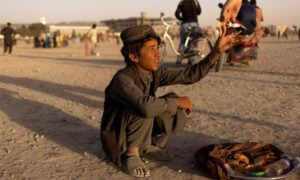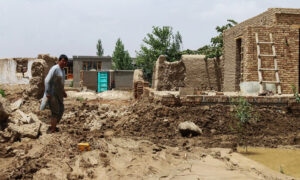Latest News
IRC helps with emergency response after eastern Afghanistan hit by heavy storms
Thousands of people have been left stranded without access to services and basic facilities, and hundreds of homes have been destroyed.
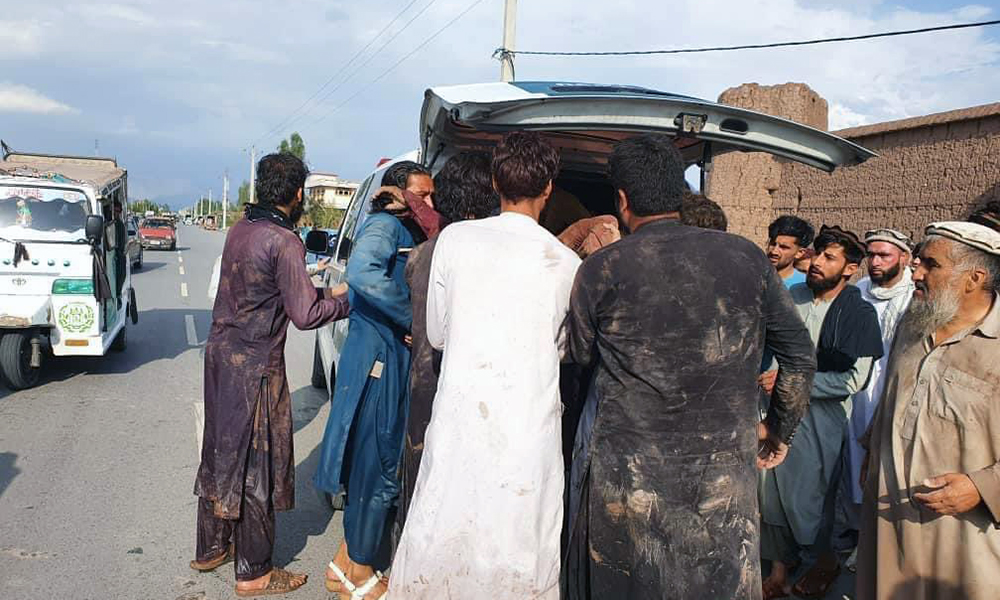
The International Rescue Committee (IRC) has deployed a mobile health team to the worst affected areas of Surkhrod district in Nangarhar after heavy windstorms, rain, and flash floods across the province left at least 35 dead and hundreds injured.
The storms hit on Monday and struck many areas across Afghanistan, including Jalalabad city, Surkhrod, Lalpura, Goshta, Momanadara, Batikot and Behsud districts of Nangarhar.
Thousands of people have been left stranded without access to services and basic facilities, and hundreds of homes have been destroyed.
The IRC said on Tuesday it has deployed a mobile health team to the worst affected areas of Surkhrod district in Nangarhar, and is preparing to deploy two emergency response teams, who will deliver emergency health services to those who have been injured or are cut off from accessing mainstream services as a result of the storms.
The storms have led to widespread damage and casualties. Infrastructure such as bridges, roads, and homes has been destroyed, the IRC stated.
This area is still recovering from devastating floods that occurred two months ago, with many families still sheltering outside as they struggle to rebuild their homes.
Salma ben Aissa, IRC Afghanistan Director, said: “The loss of life and devastation in flood-affected areas is a fresh disaster for Afghanistan. Our thoughts are with the people impacted by this tragedy and the first responders working to rescue and provide medical care to families and individuals.
“As part of the response efforts, the International Rescue Committee in Afghanistan is mobilizing teams to provide crucial support to the affected areas and deploying teams to conduct assessments and provide emergency health services to those in need,” she said.
According to her, the continuation of climate-induced disasters in Afghanistan should be cause for grave concern. She pointed out that decades of conflict and the economic crisis has meant the country has faced setback after setback as it tries to find its feet.
“The sad reality is that without a massive increase in support from donors and the international community, many more will lose their lives,” she said.
Related Stories:
IRC warns of growing crisis in Afghanistan amid aid funding cuts
Latest News
Chinese, Turkmen officials meet to discuss Afghanistan
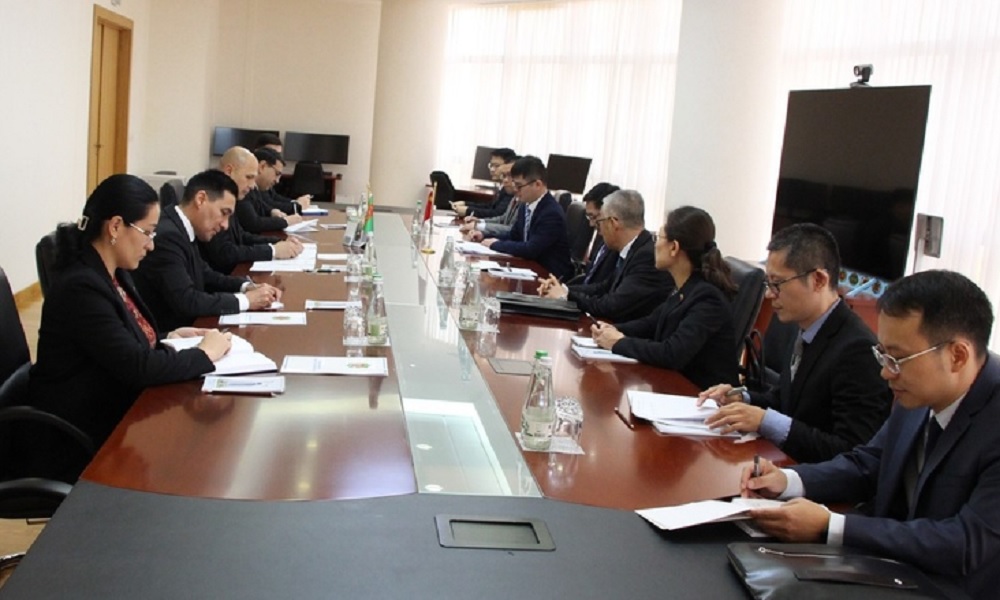
Deputy Minister of Foreign Affairs of Turkmenistan Serdar Muhammetdurdiyev on Thursday met with Chinese special envoy for Afghanistan, Yue Xiaoyong, the Foreign Ministry of Turkmenistan announced.
During the meeting, the sides discussed priority vectors of strategic interstate cooperation built on a long-term, mutually beneficial basis, as well as exchanged views on the implementation of previously reached agreements.
It was noted that personal contacts between the leaders of the two countries play a key role in intensifying the interstate dialogue, which give a strong impulse to further development and expansion of Turkmen-Chinese ties.
It was emphasized that Turkmenistan considers multilateral international platforms for maintaining stability in Afghanistan as an important factor in promoting sustainable improvement of socio-economic state of the neighboring country. The sides exchanged views on the preparations to the 5th meeting of Foreign Ministers of Afghanistan's Neighboring States to be held in Turkmenistan.
The interlocutors reaffirmed that Turkmenistan and China will continue to provide all-round support for the economic restoration of Afghanistan.
Latest News
U.S. House approves bill on evacuation of Afghan allies

The U.S. House Of Representatives has passed a legislation on evacuation of Afghans who assisted Americans during the 20-year war in Afghanistan.
“The passage of the CARE Authorization Act of 2024 further underscores the commitment made by the U.S. government to safeguard those who served shoulder-to-shoulder with our personnel during the twenty-year mission in Afghanistan,” Congresswoman Dina Titus said in a statement.
“The State Department has made it clear: There is no deadline for the crucial job of protecting Afghan allies. By authorizing the Coordinator for Afghan Relocation Efforts at the State Department, we can more effectively relocate and resettle those who have qualified to immigrate to the U.S. as a result of their service to this country.”
In 2022 the State Department established a specialized office called the Coordinator for Afghan Relocation Efforts (CARE) to streamline and coordinate the ongoing relocation and resettlement process for eligible Afghans from Afghanistan and Pakistan to the United States.
The CARE Authorization Act of 2024 will formally authorize the CARE office at the State Department for three years and grant important authorities to advance its mission. These include an extension of authorities to enter into personal services contracts as well as measures to streamline the transfer of funds to and from other agencies involved in the Afghan relocation mission.
Latest News
Mujahid says IEA stands with media outlets
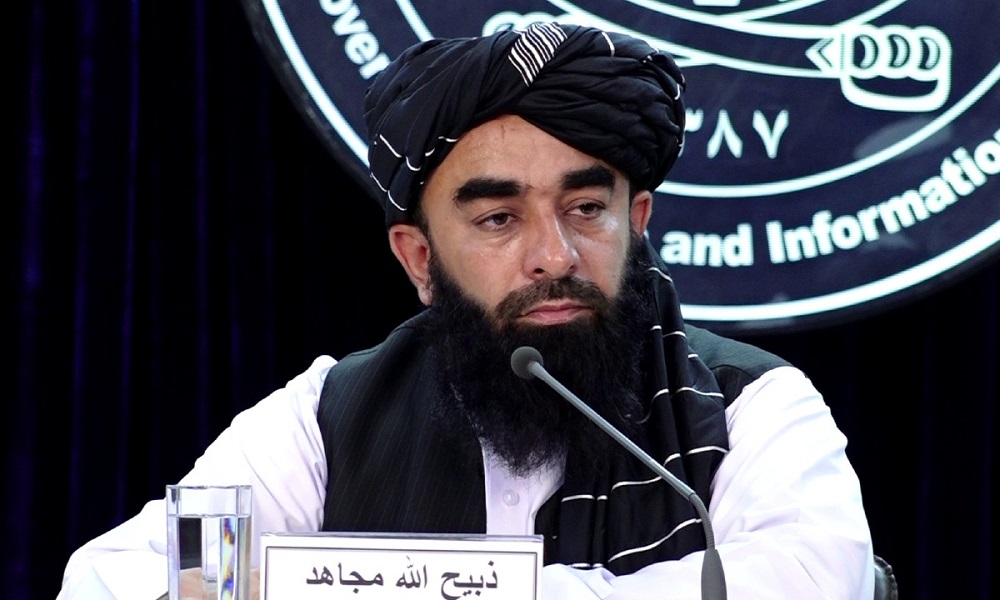
The Islamic Emirate’s spokesman Zabihullah Mujahid says the acting government is committed to supporting media outlets and they can operate within the framework of Islamic Sharia and national interests.
Marking World Television Day on Thursday, November 21, Mujahid said: “The Islamic Emirate of Afghanistan supports the media in general. Media can operate within the framework of Islamic Sharia and national interests.”
“As far as we are able, we cooperate with the media and the Afghan media currently have publications and they are broadcasting their publications well,” he added.
The United Nations General Assembly named November 21 as World Television Day in 1996.
“Since IEA’s takeover, of 184 national and local televisions, 57 television stations were shut down due to economic problems,” said Hojatullah Mujadadi, the head of Afghanistan Free Journalists' Association (AFJU).
Currently, about 370 visual, audio and print media are active in the country.
-

 Sport5 days ago
Sport5 days agoFIFA unveils Innovative Club World Cup Trophy ahead of new tournament in 2025
-

 Regional5 days ago
Regional5 days agoIndia’s successful test of hypersonic missile puts it among elite group
-

 Latest News5 days ago
Latest News5 days agoTrump team compiling list of military officers responsible for US withdrawal from Afghanistan
-

 Latest News5 days ago
Latest News5 days agoCanada sent 19 failed asylum seekers back to Afghanistan last year
-

 Sport4 days ago
Sport4 days agoAbu Dhabi’s thrilling T10 tournament just days away
-

 World4 days ago
World4 days agoBiden allows Ukraine to use US arms to strike inside Russia
-

 Sport4 days ago
Sport4 days agoAfghanistan beat UAE by 169 runs in U19 tri-series
-

 Business5 days ago
Business5 days agoMullah Baradar inaugurates a blanket factory in Kabul

